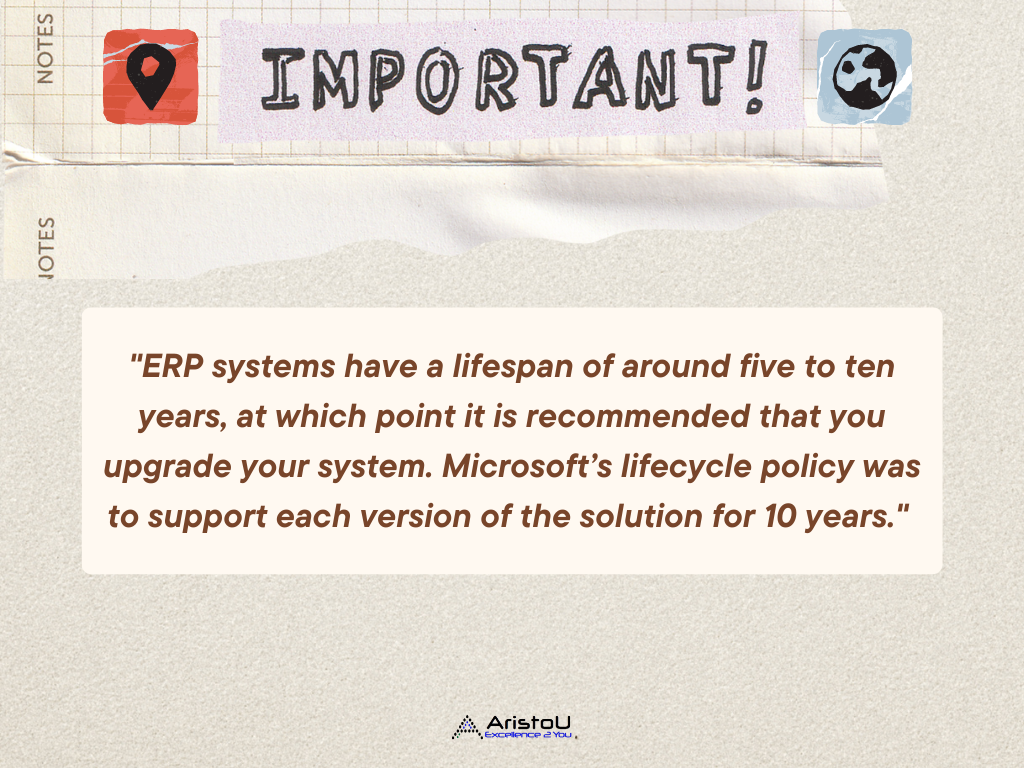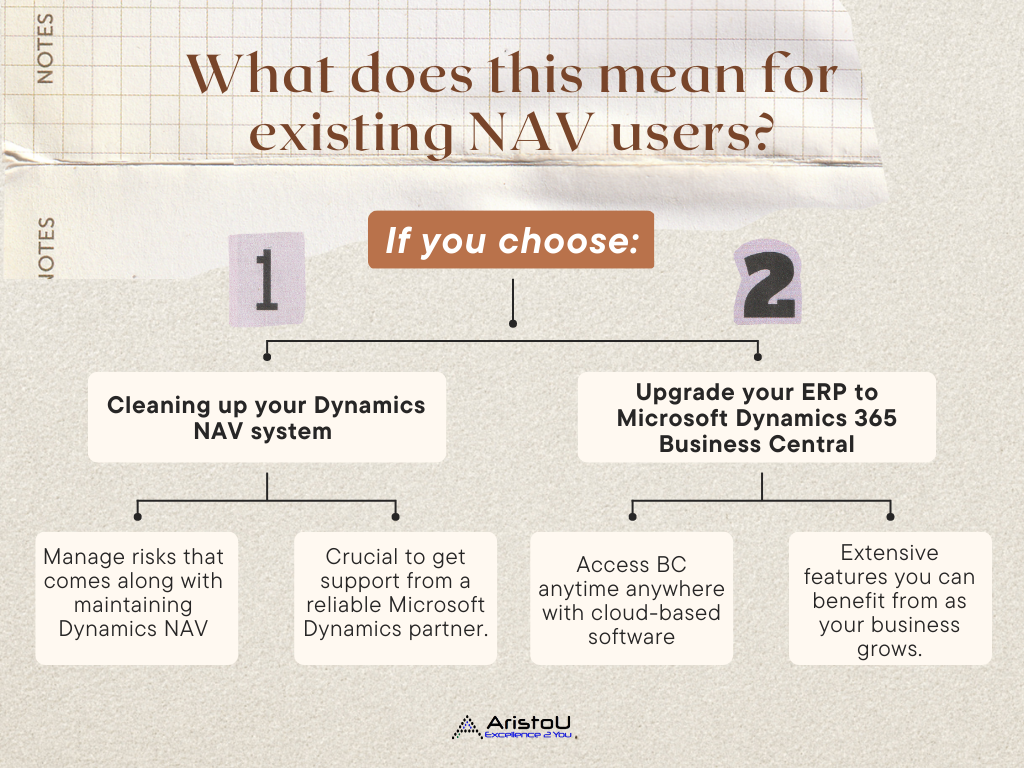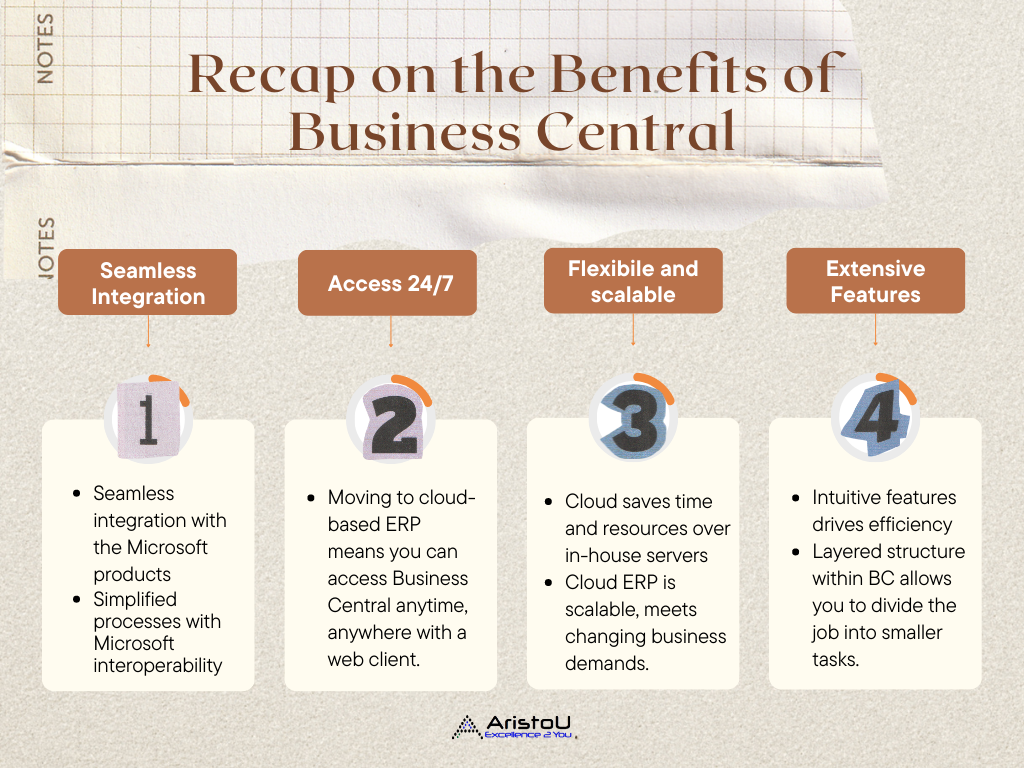Support has ended for NAV in 2023 – Here’s what it means and why you should upgrade to BC
Are you a user of Microsoft Dynamics NAV 2017 or an earlier version? If so, you don’t want to skip this blog post!
The recent update of Dynamics NAV versions removing mainstream Microsoft support as well as Dynamics NAV 2013 and 2013 R2 from 10th January 2023 is no news to us all.
From there, your Dynamics NAV instance will receive security updates only until the end of the extended support period and no Dynamics NAV version will longer receive updates.
However, if you’re still currently using those versions of Dynamics NAV, or have yet to migrate to Business Central, you know what we’re talking about. We have a few options for you.
Let’s break it down together below.
First, if you’re unfamiliar with the Dynamics NAV Microsoft support lifecycle, let’s provide some context below.
In general, ERP systems have a lifespan of around five to ten years, at which point it is recommended that you upgrade your system. Microsoft’s lifecycle policy was to support each version of the solution for 10 years. The first five years are standard Microsoft support and the last five are extended support.
Now this doesn’t mean that the ERP won’t still run and provide benefits to your business, it just means that you may miss out on any new functionalities and receive fewer security updates.
There are 2 types of support contracts. Regular support is when the product receives new features, security updates and non-security updates. In extended support you only receive security updates.
Dynamics NAV 2017 is reaching this point, adding another reason to upgrade to Dynamics 365 Business Central which we will talk about in a bit.
What does this mean for existing NAV users?
Option 1: Cleaning up your Dynamics NAV system
If your Dynamics NAV system is highly customized, changing or upgrading your ERP with basic support can be a tricky task. In this case, we highly recommend having a reliable Dynamics NAV support partner working with you to extend the life of your system.
If you choose this option, there are several risks to consider:
-
It is significantly more difficult to integrate with new technologies such as external third-party solutions with an older ERP like Dynamics NAV.
-
i.e: leveraging Power Automate, Power Apps, and Teams will also be harder.
-
As your ERP solution ages and goes out of regular support, there’s a company risk that it will no longer meet current financial regulations
-
Your devices may no longer support your Dynamics NAV system
-
As your ERP ages, the chance of it crashing increases. This will lead to unexpected downtime for your business, which will affect productivity and profitability.
To combat the above risks, it is crucial you get support from a reliable Microsoft Dynamics partner. Otherwise, we’d highly recommend the second option below.
Option 2: Upgrade your ERP to Microsoft Dynamics 365 Business Central
Microsoft Dynamics 365 Business Central is a cloud-based technology. In the past few years, cloud technology has shown significant potential to different businesses across industries and is continuously expanding.
According to a cloud adoption survey conducted in 2021 by O’Reilly (2021), cloud adoption by companies has increased to 90% in 2021, up from 2% back in 2020.
This statistic alone provides more reason for you to upgrade your ERP solution to Business Central and reap the benefits of the cloud.
For Dynamics NAV users, the most obvious and beneficial upgradeable solution is Microsoft Dynamics 365 Business Central.
Business Central is the next version of Dynamics NAV and the latest ERP from Microsoft. It is an ingenious cloud-based management software that promises to transform your business.
Recap on the Benefits of Business Central
Benefits of moving to Business Central includes:
-
Seamless integration with the Microsoft product portfolio
-
Moving to cloud-based software means you can access Business Central anytime, anywhere with a web client.
-
Business Central monthly fee allows you to easily add or remove users using the payment model.
-
Extensive features you can benefit from as your business grows.














Leave a Reply